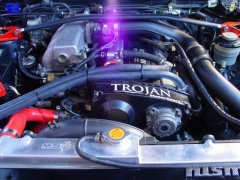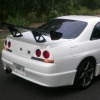What Car To Purchase?
Announcements
-
Similar Content
-
Latest Posts
-
Goddam! Thats the dream, neo heads seem hard to come by these days though, best I've seen is $2-3k or there's a full motor for $7k atm
-
Cheers for the input, 450kw on poncams is impressive! I assumed you'd need 264 or 272 for that power level, good to know you don't need to rev that high to hit it, just don't want to buy the cams etc then find out the hydraulic lifters suck haha The box will be getting reconditioned too, possibly an aftermarket gearset if it turns out they're toast, cheers I'll keep that in mind
-
I think definitely get a manual oil pressure gauge on it then. Double check if it's really dropping pressure that low.
-
yes sorry i should of spoke better, all sensors are grounded into their specific homes in the ecu, the ecu is then grounded to the chassis itself along with the EFI relay.
-
I'll check the wiring plan tomorrow. Now when you say ALL the earth's are to the chassis, is that including the sensor ground from the ECU? Certain items should not be grounded to the car/body/chassis, they should ground back to specific ground pins on the ECU.
-





Recommended Posts
Create an account or sign in to comment
You need to be a member in order to leave a comment
Create an account
Sign up for a new account in our community. It's easy!
Register a new accountSign in
Already have an account? Sign in here.
Sign In Now